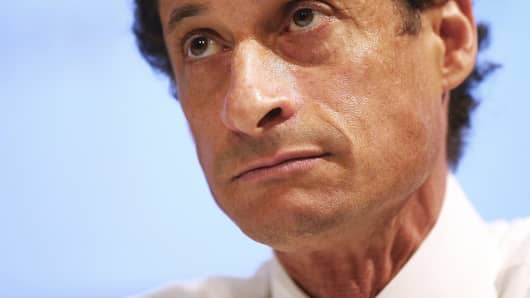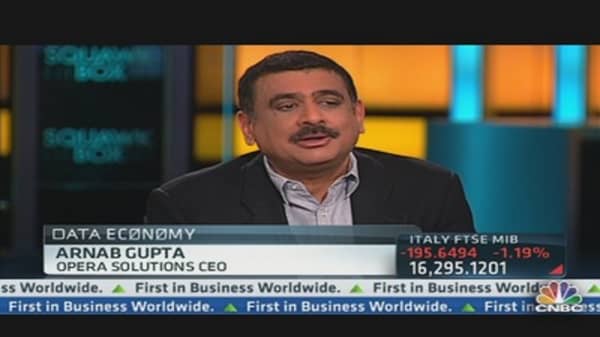New York mayoral hopeful Anthony Wiener's latest Twitter fallout has caused him to drop several points in the polls this week, but Weiner told NBC News on Monday that those numbers didn't matter much. "Polls don't stop the election. I'm going to keep moving forward," Weiner said.
The former congressman reflects a growing trend of politicians on the campaign trail relying less and less on polling because of its somewhat antiquated approach toward measuring public opinion. They are turning to social media instead.
Weiner, of all people, understands the power of Twitter, which became somewhat of a double-edged sword for him as he had to end his congressional career.
If you believe the polling institutes, you're an elderly homebody who waits patiently by the phone and endures 15-minute opinion surveys.
This may be you, but chances are it's not. Especially because more than one-third of the population doesn't use landline telephones anymore.
Today's political campaigns demand reliable assessments of public opinion in real time, something that the traditional polls have yet to accomplish.
Polling organizations have turned to robo-polls—automated telephone polling surveys—to be more efficient with money since cold-calling may turn out to be a huge waste of time. But that hasn't really brought polling up to speed.
John Geer, a professor of political science at Vanderbilt University and an expert on presidential election campaigns, described robo-polls as "funky."
"A lot of the polling problems are tied to the robo-polls," Geer said. "They're quick and dirty and cheap. You don't know who the devil is answering; it could be a 5-year-old."
Companies such as BehaviorMatrix have started to sprout up in the past few years in an effort to pick up the slack. Marketing themselves to politicians, party donors and private companies as a quick and effective polling alternative, these firms use a blend of data analysis and behavioral science to sidestep the phone calls and dive right into the 21st century's fountain of public opinion—your tweets.
(Read more: Firms try to outwit mother nature—using big data)
BehaviorMatrix was launched in Blue Bell, Pa., just outside Philadelphia in 2008, as what CEO Bill Thompson called a "stealth" organization. The company waited four years to start taking clients, just in time for the 2012 presidential election.
The 30-person team of scientists at BehaviorMatrix uses proprietary, patent-pending technology called EmPrint (emotional imprint) to gauge people's emotional disposition toward a specific subject, using algorithms that connect public records (such as voter registration, names, addresses) and social media posts that share people's thoughts on current affairs and politics with their friends (and everyone else) in cyberspace.
The next step is to measure the intensity of certain emotions expressed on these platforms, which BehaviorMatrix's behavioral scientists assume will guide voters during any election.
According to Thompson, BehaviorMatrix has been able to predict election results with a 97 percent accuracy rate using EmPrint technology. Thompson said that BehaviorMatrix called the outcome of the 2012 election months before Election Day, when Mitt Romney announced Paul Ryan as his running mate in early August.
BehaviorMatrix wasn't the only political player using data analysis for a competitive edge on the campaign trail.




